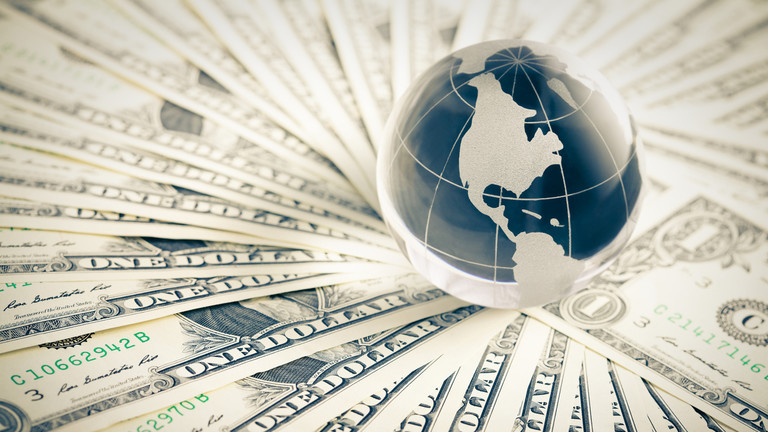The price of gas futures in Europe has plunged nearly 22%, below $1,000 per 1,000 cubic meters, on news that Russia is willing to ramp up supplies to the continent. Gas prices nearly reached $2,000 a day earlier.
According to trading data from the Intercontinental Exchange (ICE), the price of November gas futures on the Dutch TTF index started trading at almost $1,260 per thousand cubic meters on Thursday, then briefly jumped to $1,370 at 6:13am GMT and later showed a steady decline. By 8am GMT, the price fell to $973 per thousand cubic meters, which is 22% lower than its closing price the day before. On Wednesday, the price of gas in Europe briefly reached a historic high of $1,937 per thousand cubic meters, nearly three times its cost in September.

Gas price in Europe soars above $1,900 per 1,000 cubic meters
Gas futures started their decline late Wednesday when Russian President Vladimir Putin said the country would boost supplies to Europe.
“You have proposed increasing the supply of gas on the market, on the exchange, in order to bring down speculative demand and the turmoil in Europe. This can be done… on the stock exchange in St. Petersburg,” Putin stated at a meeting on energy development, addressing Deputy Prime Minister Alexander Novak.
The president also urged Russian state energy giant Gazprom to continue to fulfill its obligations for gas deliveries to the EU through Ukraine.

Five European countries call for probe into soaring gas prices as they continue to smash historic highs
“It is necessary to fully comply with the contractual obligations for the transit, delivering our gas through the gas transportation system of Ukraine,” Putin said. He also noted that Gazprom should not increase gas supplies through new pipelines bypassing Ukraine under the current circumstances, even though it might be highly beneficial.
Some have criticized Russia for not helping Europe overcome the current energy crunch and holding back supplies. Putin dismissed these claims, stating that “there was not a single case in history when Gazprom refused to increase supplies to its consumers… Even in 2020, when total deliveries to Europe declined against 2019, we nevertheless supplied an additional 4.7 bn cubic meters of gas to Germany – totaling 112.9%.”

Launch of Russia’s Nord Stream 2 pipeline could bring European gas prices down to historic lows – Saxo Bank
Kremlin spokesman Dmitry Peskov noted that surging gas prices stem from a variety of factors, and “only amateurs” can blame Russia for the situation.
“We insist that Moscow is in no way at fault for the situation on the gas market in Europe, this is inconceivable. Russia has fulfilled, is fulfilling and will fulfill all the obligations assumed under existing contracts in a consistent and thorough manner…
“Only amateurs, only those who do not understand what it’s all about can point to Russia in this context,” Peskov said.
According to Peskov, the current developments in Europe were brought about by the post-pandemic economic recovery, the surge in energy consumption, and unfilled gas storage facilities.
For more stories on economy & finance visit https://www.thesanfranciscotelegraph.com/category/finance/

 NEWS5 months ago
NEWS5 months ago
 NEWS5 months ago
NEWS5 months ago
 NEWS5 months ago
NEWS5 months ago
 WAR5 months ago
WAR5 months ago
 FINANCE5 months ago
FINANCE5 months ago
 INVESTMENTS5 months ago
INVESTMENTS5 months ago
 FINANCE5 months ago
FINANCE5 months ago





























